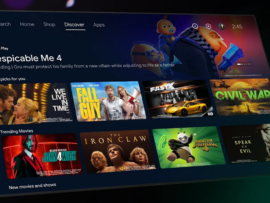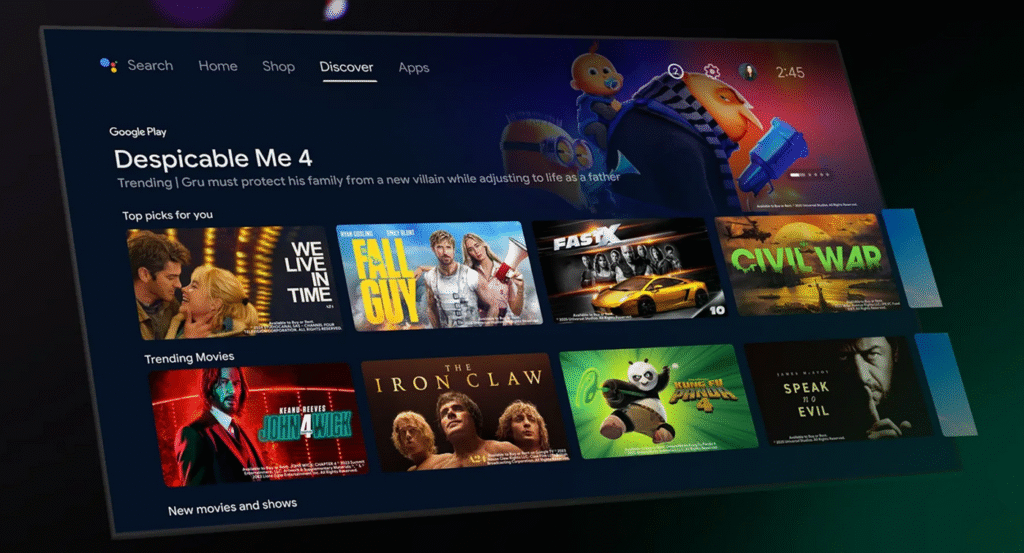
Google has rolled out a new round of system service updates for Android devices, highlighting improvements in account management, developer tools, safety, and privacy.
The November 2025 update affects multiple device categories, including phones, tablets, Wear OS watches, Android Auto and Automotive systems, and Android TV.
In account management, parents using Family Link or similar controls now receive clearer notifications before blocking access to the Gemini app, part of Google’s broader efforts to make AI features more family-friendly.
For developers, Google has introduced new tools across Auto, Phone, TV, and Wear platforms to support integrating Maps-related functions into third-party apps. These changes could lead to richer, more contextual location-based experiences in both navigation and non-navigation apps.
Emergency calling gains live video capability
One of the most notable changes this month is the introduction of live video integration during emergency calls on Android phones. This feature could allow dispatchers to see what’s happening in real time, potentially improving response accuracy and safety outcomes. It builds on Google’s long-term push into advanced emergency technologies, such as location sharing and real-time text for 911 services.
The new capability reflects a broader industry trend toward more immersive and connected emergency support, blending device sensors, cameras, and AI interpretation to provide critical information during crises.
Security, privacy, and system management improvements
The November update also adds the ability to back up and restore SMS retriever preferences on Android, ensuring that users who rely on automatic verification codes retain their setup when moving between devices. This feature spans Auto, Phone, and TV platforms, aligning with Google’s focus on continuity across devices.
Updates to core system management services across all platforms aim to improve overall stability. Google has steadily shifted toward frequent, modular updates, allowing it to deliver fixes and optimizations without requiring full Android version upgrades.
Changes to Google Wallet and regional feature rollbacks
In the Wallet category, Google confirmed that the “Cards QR” feature is being removed in Brazil. The move suggests a possible consolidation of QR code payment methods as Google continues to standardize its financial tools globally. Meanwhile, Brazilian users may see tighter integration with local payment systems like Pix, which was recently enabled for Gboard users in the earlier November update.
Play Store usability and subscription tracking
The Play Store updates — now at version 48.8 — introduce two user-focused enhancements. First, users can now uninstall apps directly from their Play Store listings, simplifying app management without needing to navigate through device settings. Second, the Subscription Center now displays all active subscriptions and Play Points earned in a given year, offering greater transparency and budget awareness for frequent app users.
For users who recently transitioned from minor to adult accounts, the Play Store (v48.7) now prompts them to review ad personalization preferences — a step aligning with regulatory and ethical standards for digital advertising and data consent.
TV and developer ecosystem updates
On Android TV, version 7.2.3 introduces account capabilities for Backdrop — the screen saver-like feature that displays curated images — and updates its software development kit (SDK) to version 36. This suggests Google is preparing for deeper personalization and cross-device integration in the living-room ecosystem.
Earlier in the month, version 25.43 of Google Play services added enhancements for parent-managed contacts, a redesigned storage section in Google Settings, and new developer options for image scanning on phones and PCs. Autofill gained support for CVV code storage, a small but useful improvement for online shopping convenience.
Broader implications
Taken together, these November 2025 updates show Google’s incremental but steady expansion of the Android ecosystem into new dimensions of safety, convenience, and interoperability. By decoupling more features from full OS releases, the company can push improvements faster across its fragmented device landscape. The live video emergency feature, in particular, could mark a significant milestone in how smartphones assist during crises — though it also raises questions about privacy safeguards and data handling.
As Google continues refining system services, these updates reinforce its strategy of treating Android not just as a mobile operating system, but as a continually evolving platform spanning phones, cars, TVs, and wearables.
In other news, Google is stepping up its fight against phishing by urging Gmail users to move beyond passwords.


